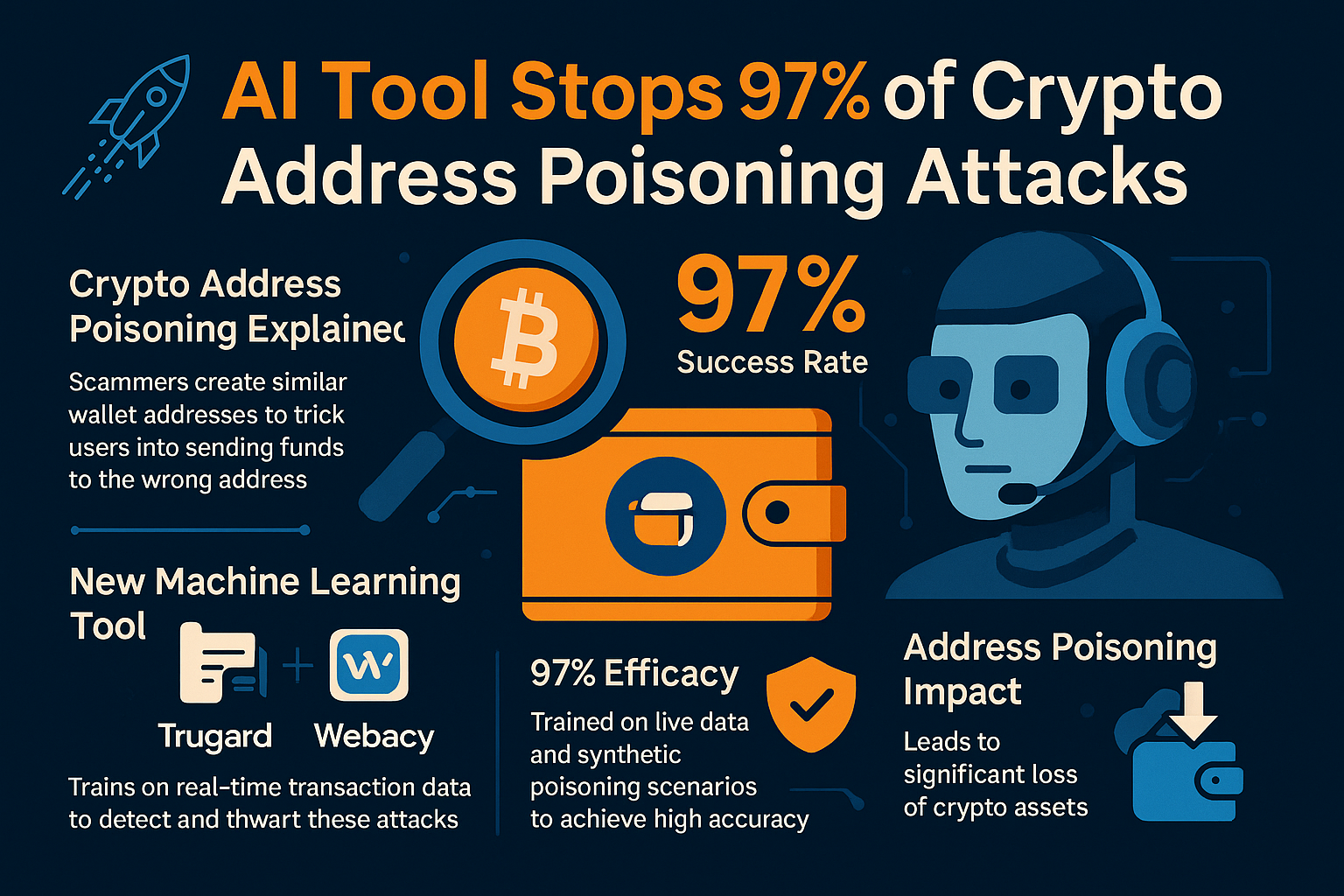New AI tool from Trugard and Webacy detects 97% of crypto wallet address poisoning scams using machine learning and real-time onchain data.
Date: 21 May 2025
A new AI-powered crypto security tool claims to detect and stop 97% of wallet address poisoning attacks — a rising threat in Web3.
On May 21, cybersecurity firm Trugard and blockchain safety platform Webacy announced the launch of a new machine learning–based tool designed to tackle one of the crypto world’s most deceptive scams: address poisoning.
The system is part of Webacy’s crypto decisioning suite and uses supervised machine learning, onchain analytics, and behavioral context recognition to identify malicious address patterns in real-time.
“Address poisoning preys on users who trust partial address matches,” said Maika Isogawa, Webacy co-founder. “It’s simple, silent, and costly.”
What is Address Poisoning?
In this scam, attackers send tiny transactions from lookalike wallet addresses that mimic a victim’s real address — often using the same beginning and end characters. Victims may mistakenly copy and reuse the poisoned address, sending funds to the scammer.
A 2025 study revealed over 270 million poisoning attempts occurred on Ethereum and BNB Chain from 2022 to 2024, leading to $83 million in stolen funds from around 6,000 successful scams.
How the AI Tool Works
According to Jeremiah O’Connor, CTO of Trugard, the tool was trained using synthetic data that simulated poisoning patterns, enabling the AI to learn attack behaviors and generalize to new scams.
“Most current systems rely on static rules,” O’Connor said. “Our model adapts in real-time by learning from transaction behaviors and evolving attacker tactics.”
Unlike basic filters, the AI tool uses contextual analysis and pattern recognition, making it robust against novel attack vectors. Webacy’s system is updated regularly using new live and synthetic data, maintaining a high success rate over time.
Bridging Web2 Cybersecurity with Web3 Needs
Trugard brings deep Web2 security expertise into Web3 by applying algorithmic feature engineering to blockchain data — an approach rarely seen in crypto detection tools.
“AI allows us to detect behavioral patterns humans miss,” said Isogawa. “That’s where our 97% efficacy comes from.”
The Bigger Picture
With address poisoning underreported yet widespread, this innovation marks a major shift in crypto wallet protection. If widely adopted, tools like this could drastically reduce everyday user risk — especially in environments where clipboard copying and UI spoofing are common.


